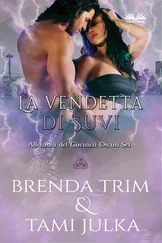Later – two, perhaps three hours – Hartmann went up to see Perez.
The man seemed genuinely distressed and upset.
‘How many?’ he kept asking. ‘Four men… all of them young. Families, with children also? Aah, such a waste, such an unnecessary waste.’
And then he said something that Hartmann did not understand, and perhaps would not understand until this whole thing unraveled.
‘This thing,’ he said. ‘This thing that Feraud has done… and I am sure, as sure as I am of my own birth and death that it was Feraud… this thing he has done has merely served to confirm that I have made the right decision.’
And though Hartmann questioned him, insisted that he explain himself further, Perez would not divulge anything.
‘Wait,’ he said. ‘Wait, Mr Hartmann, and you will see what I have done.’
Hartmann, Schaeffer and Woodroffe did not return to the Marriott. They stayed there at the Royal Sonesta, for this now had to be their base of operation, and while they lay, restless and afraid, in their beds, while they asked themselves if Feraud would also attempt to kill Ernesto Perez in the very hotel where they now were, Lester Kubis sat up until the early hours of Saturday morning preparing another room in which Hartmann could speak with Perez.
The following morning Feds would be stationed en masse in the foyer and around the Royal Sonesta Hotel. Less than a mile away three teams of Crime Scene investigators would pore through the rubble of the FBI Office’s lower floor, and from the still-smouldering wreck they would salvage what little they could to help them understand what had happened. Schaeffer exercised a degree of self-control and military precision in everything he did, and he stressed time and again that they could not afford to lose sight of what they were doing and why. The investigation of the bombing was now someone else’s problem; theirs was still the task of finding Catherine Ducane.
A report would come back from Quantico regarding the bombing in Chicago in March of 1991. Seemed that whoever had overseen the investigation had been in the employ of the Irish families, and with a word from their Italian counterparts the details had been ‘lost’. Official documents acknowledged that a car had in fact exploded, but whether it was an intentional attempt on someone’s life or a vehicular ‘accident’ was never established. Two deaths were noted but there were no names, nothing at all to indicate who might have been in the vehicle when it exploded.
Sheldon Ross’s mother would wake to find a representative of the Federal Bureau of Investigation on her doorstep, as would the wives of Michael Kanelli and Ron Sawyer. James Landreth had been orphaned at the age of nine, but his sister was still alive and well and living in Providence, Rhode Island. Her name was Gillian, her husband’s name was Eric, and three weeks before they had been informed that there was a ninety-five percent possibility they would never conceive children. Gillian greeted the agent, a man called Tom Hardwicke, and while he told her of her brother’s death she made coffee at the stove and cried without tears.
‘Such a waste,’ Ernesto Perez kept saying as he sat facing Hartmann that Saturday morning. ‘Such an utter waste of life, is it not?’
And Hartmann – still shocked and horrified at what had taken place only hours before, still ragged from too little sleep and insufficient appetite to manage breakfast – looked back at Ernesto Perez and wondered when this nightmare would end.
The trick , he kept telling himself, is to keep breathing .
Ross, Kanelli, Sawyer and Landreth had missed the trick, it seemed, and so might Catherine Ducane if this went on much longer.
‘Tell me,’ Hartmann eventually said. ‘Tell me what happened when you went back to Havana. Tell me what happened to your son.’
And Perez, seated there in a room on the second floor of the Royal Sonesta, surrounded every which way by agents of the Federal Bureau of Investigation, leaned back in his chair and sighed.
‘Okay,’ he said quietly. ‘I will tell you exactly what happened.’
Havana. Home of my father.
Thirty-two years ago we had come here. Irony is sharp and relentless: he too was running from the murder of his wife.
Havana. Some imagined sanctuary perhaps. It had begun to show its age, to lose its charm and passion, but for me it had not lost its memories.
Losing also its Soviet patronage, but Castro was nevertheless still a presence everywhere I looked. American finance and influence had already begun to show, and as I walked my eight-year-old son through the streets of La Habana Vieja I could see where time had marked its passage through the city.
Three decades I had been absent, three decades of life with all its sharp corners and rough edges, but still the sounds and smells of this place returned to me as if it had all been yesterday.
I found the house where I had lived as a young man with my friend Ruben Cienfuegos, and for the first time I was truly aware of how much I had changed. Back then I had killed Ruben for the promise of something. Now I believed I would kill for two reasons alone: the vengeance of my wife and daughter, and to protect the life of my son.
There was no shortage of money, and I rented a small house on Avenida Belgica near the Old Wall Ruins. I hired a woman also, an elderly Cuban national called Claudia Vivó who was to stay with us to cook, to clean the rooms, to school Victor and care for him.
I was a man lost, a man without a soul, and often there would be afternoons when I would walk the streets without purpose or direction. Sometimes I would hear their voices, Angelina and Lucia, the sound of their laughter as they ran down the street behind me, and I would turn, my eyes wide with anticipation, and I would see some other child, some other mother, and I would lean against the wall, my breath shallow and fast in my throat, my eyes stinging with tears.
My heart was broken beyond repair. I knew it would never mend again.
I remember a day, perhaps a week or two after we arrived. Victor was home with Claudia Vivó; he was learning of Cuba and its history, for I had told him this was the country of his grandfather, and he wished to learn of it. Though it was only mid-afternoon, morning swallowed irretrievably in some vague wash of forgetting, the sky had deepened into incipient gray-green solidity. The air seemed thick, difficult to breathe, and I felt as if I could bear it only for moments. I wandered through the back streets, my shirt open to the waist, sandals on my feet, and at some point I stumbled towards a plankboard house with a veranda running the width of its frontage. I collapsed into a wickerwork chair, and I removed my shirt and used it to wipe the sweat from my forehead and chest. I heard voices behind me, someone calling for lemonade. Somewhere music played from an ancient phonograph, the bakelite records scratched and heavy, the sound like a chamber orchestra coming out through a maze of tunnels.
Sometimes I felt angry. Other times sad, alone, desperate, quiet. Sometimes I felt I could light the world with fire and watch everyone burn. And again, in that moment, I felt nothing. I was sick and weak and thin. I was fifty-three years old, and I felt eighty. So many things had changed, but changed for the worse, it seemed. People like me were no-one at all, less than nothing, minus zero, and we had to carve our own way through life.
Often I wished I was someone else. Someone tall and strong. Anyone else. At least it would have been different.
The heat, the bruised and turgid air, made me feel nauseous. I took my damp shirt and put it on again.
Motivation came a little later, the sky darker, the promise of a storm pressing against the afternoon, some merciless and unforgiving invasion, and I rose from the chair and started walking the streets again.
Читать дальше
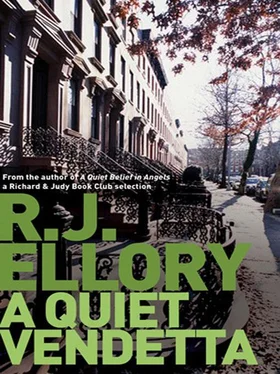
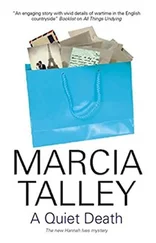
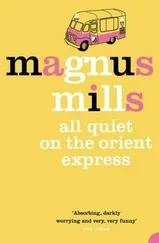


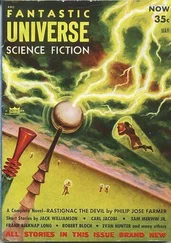

![Quiet Billie - Don't mistake the enemy [СИ]](/books/421973/quiet-billie-don-t-mistake-the-enemy-si-thumb.webp)

